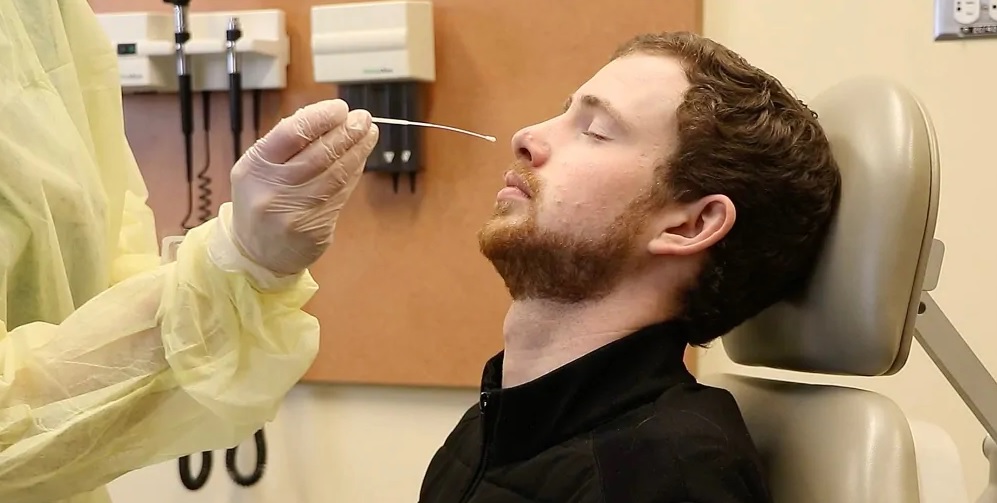
COVID-19 nose swab test (Shared Health / Province of Manitoba)
False negatives for COVID-19 possible, but rare, says UM clinician (Updated)
Note: Dr. MacDonald has corrected some misinformation in the original article.
Just because you’ve been tested for COVID-19 and your test came back negative does not always mean you are free of the infection, warns a UM clinical scientist.
In a story on CBC News, Dr. Kelly MacDonald (MD/87), head, infectious disease program at UM, explains that there’s a one per cent chance that a false negative can be the result of a COVID-19 test. It’s possible – although unlikely – that the person was tested too early, or that a swab of the back of the nose didn’t enter far enough to grab some of the infected cells.
“What we tell everybody is, if they have symptoms, and their test is negative, that it doesn’t mean that they are home free,” MacDonald said. “Everybody is warned that there is a chance of a false negative, and that they’ve got to go home and act as if they have COVID-19, regardless of the test results.”
In addition, false positives can occur, which MacDonald said are usually caused when the COVID-19 test picks up a different, local coronavirus strain.
“If they still have a fever and a cough, or symptoms consistent with a viral illness that could be COVID-19, we tell them to continue to isolate and assume that they have COVID-19 … If you deteriorate seriously and all your instincts tell you that this is a serious thing, then you need to be seen by a physician,” she said.
MacDonald said it’s more common than we realize that a person will test negative for COVID-19, but actually have the disease – false negatives can run as high as 10 per cent. She said lab tests are not the only way to determine status and affected people should take the advice of Health Links in determining their quarantine measures.
Here is the entire CBC News story.






